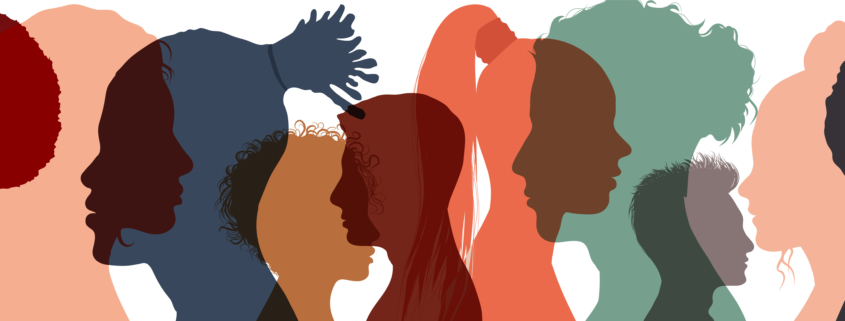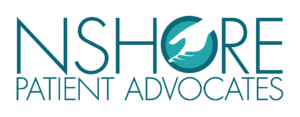Patient Advocacy’s Power in Giving Voice to Minority Clients
Racial Disparity in Healthcare
COVID-19, with its large-scale impact on our entire country (and beyond), has exposed what many already know – the disparities in healthcare; and it propelled them into our consciousness! One of the disparities is how minority communities experience COVID-19 and healthcare in general. Unfortunately, minorities have been hit harder by COVID-19, particularly Black and Latino populations. Why? The answer is complex.
In a nutshell, we have known for some time that racial disparities can exacerbate certain chronic conditions, such as diabetes, asthma, and hypertension – all conditions that are believed to aggravate the symptoms of COVID-19. It’s worth noting that these conditions are often prevalent in Black and Latino communities. This, along with other important issues, is the focus of our blog post today.
The reasons for these disparities can be found partly in social determinants of health, which include socioeconomic reasons, an array of healthcare access barriers, and lack of insurance or underinsurance. All of these factors impact the quality of care and can lead to a delay in seeking care, often until a health concern has become so serious that it requires Emergency Room care. In addition, the history and stereotyping of Black and Latino Americans has contributed to a general mistrust of medical providers.
It’s easy then to see how these social determinants of health and the historical mistrust of America’s health care system are impacting healthcare and health outcomes in these communities.
Healthcare systems are being responsible for the health outcomes of their patients. They are now critically realizing that their patients can’t be healthy unless social determinants of health are addressed. And additionally, they are realizing that their patients can’t be successfully helped unless care providers have an understanding of their cultural background.
Unfortunately, there is no easy or quick fix to this complex problem. As long as these socioeconomic differences exist, and as long as we lack healthcare equity and provider education in cultural diversity (for each segment of culture – racial, socioeconomic, gender, age, etc.), disparities will continue to exist.
BUT – while there is no quick fix to tackle this complex issue, there are smaller ways to support change constructively now.
Patient Advocacy
One such way is Patient Advocacy. Patient Advocates support their clients in their health journeys. They help clients navigating the healthcare system by:
- researching treatment options
- finding medical providers
- identifying medication side effects
- assisting with medication reviews
- helping with preparations for surgery
- aiding patient understanding of medical information & bills
- assist in understanding medical bills
- attending medical visit
- listening to their stories
- and more
In case of a Patient Advocate with a nursing background (RN), this advocacy is enhanced by their medical training and experience:
- they have a first-hand understanding of the healthcare system
- they know how to talk with medical providers (as nurses, they speak “their language”)
Having this nursing background gives the nurse Patient Advocate an enhanced ability to advocate for their client successfully. And sometimes, this “little” enhancement is not just facilitating a better understanding of their client and successful communication with the medical care provider; it actually could mean the difference between life and death, as the nurse Patient Advocate may identify potential clinical health risks before they become too dangerous.
This advocacy provides critical support to patients, as navigating the healthcare system is complicated for most, but for minority group members, it is even more complicated.
The Voice of the Client
While we live in one of the most diverse countries in the world, our culture so far has been based mainly on standards and protocols geared towards the majority. This is reflected in the healthcare system, too. Medical schools do not yet teach and promote providers with the necessary cultural competencies and readiness to take into consideration their minority patients’ cultural, spiritual, ethnic, or other culture-specific values when interacting with them. This is creating barriers in understanding and connection between patient and provider.
In addition, due to historic medical atrocities against black patients and the implicit bias that continues to exist today, black patients are particularly vulnerable and in need of advocacy in clinical settings.
Speaking from our own experiences as RN Patient Advocates (Registered Nurse), when our clients:
- don’t know how or where to start,
- get discouraged or give up hope,
- lack self-discipline or motivation with diligent attention to a treatment protocol,
- are exhausted or frustrated in their journey,
… we are holding their hands, we are on their side, we are listening to their message. We hear their voice!
Listening to the “voice” of the client is at the heart of advocacy. Their voice is a critical and immediately accessible tool that is particularly valuable in advocating for minority patients in a majority healthcare system.
By listening to their experiences and stories, we learn. It enables us to analyze what is going on and identify particular and immediately relevant disparities. This, in turn, empowers us to come together with our client and their medical providers to find out what can be done and how we can level resources.
By sharing their stories, awareness is spread, and someone else might be empowered, be it another patient or medical care provider. Empowerment is pivotal.
When someone confidently believes that their voice truly matters, they will use their voice to speak up. Speaking up will contribute to bringing about change on an individual level as well as a communal level.
In Conclusion
While there is no quick fix to solve the racial disparities in our healthcare system, we already have tools available to support impacted patients. Patient Advocates are one such tool. All the aforementioned ways a Patient Advocate can help their client, have the power to make a big difference in how minority groups experience healthcare and benefit from it.
We hope that one day, each patient all over the USA will have access to a Patient Advocate to support them in navigating the healthcare system.
Through our sister company Seniors Alone Guardianship & Advocacy Services (SAGAS) https://seniorsalone.org, we have already hired three grant writers to help with serving these impacted groups and we are looking for more grant partners. If you are a grant writer, or if you are not but have an idea to share with us, please contact us. We want to hear from you.
Be blessed, be well
Resources
Why Health Care Is Different If You’re Black, Latino Or Poor. Forbes. https://www.forbes.com/sites/robertpearl/2015/03/05/healthcare-black-latino-poor/?sh=257a16aa7869
Coronavirus in African Americans and Other People of Color. Johns Hopkins Medicine. https://www.hopkinsmedicine.org/health/conditions-and-diseases/coronavirus/covid19-racial-disparities
Racial Disparities in COVID-19: Key Findings from Available Data and Analysis. KFF. https://www.kff.org/racial-equity-and-health-policy/issue-brief/racial-disparities-covid-19-key-findings-available-data-analysis/
Cultural Competence and Ethnic Diversity in Healthcare. National Center for Biotechnology Information. https://www.ncbi.nlm.nih.gov/pmc/articles/PMC6571328/
Achieving Equity in an Evolving Healthcare System: Opportunities and Challenges. National Center for Biotechnology Information. https://www.ncbi.nlm.nih.gov/pmc/articles/PMC4724388/
Cultural Considerations in Health Care. NSPA Blog. https://www.northshorern.com/cultural-considerations-in-health-care-2/
Teri’s Corner
Why doctor and nurse burnout is everybody’s business. Daily Herald. https://www.dailyherald.com/entlife/20210306/why-doctor-and-nurse-burnout-is-everybodys-business
Patience needed as we move forward in the fight against COVID-19. Daily Herald. https://www.dailyherald.com/entlife/20210206/patience-needed-as-we-move-forward-in-the-fight-against-covid-19
Why do people lie to their doctor. Daily Herald. https://www.dailyherald.com/entlife/20210131/why-people-often-lie-to-their-doctor
This small key can be a key to recovery. Daily Herald, https://www.dailyherald.com/entlife/20210117/this-one-small-step-can-be-key-to-recovery
“Nurse Advocate Entrepreneur” Online Course
What the world needs now is more RN Patient Advocates. Join the rapidly growing field of professional private Patient Advocacy. For more information click on the link and learn how:
For a no-cost 30 minute initial consultation, please call 847-612-6684 or click here to fill out our online callback request form.





